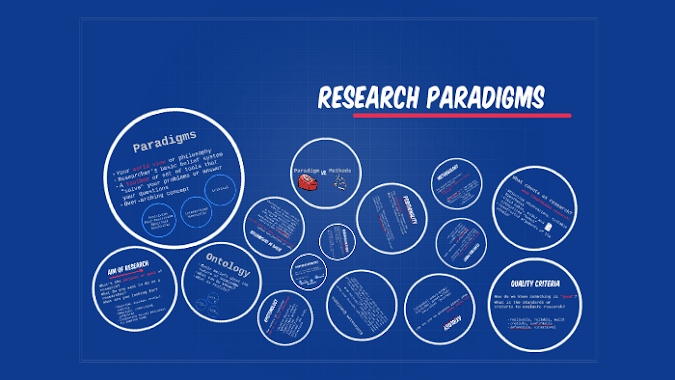Research Paradigms
Research paradigms are the theoretical framework used to identify and evaluate research in the field of science. They are applied to all areas of research, from the natural sciences to the social sciences, to better understand the underlying principles of research methodology. The three main research paradigms are positivism, interpretivism, and critical theory (Creswell, 2013).
Positivism is the belief that the scientific method is the only valid means of obtaining knowledge. It is based on the principles of objectivity and empiricism, or the use of observation and experimentation to understand and explain the world. In this research paradigm, the goal is to obtain objective facts and data through careful observation and experimentation. The use of quantitative methods, such as surveys and experiments, are emphasized in positivist research (Creswell, 2013).
Interpretivism is based on the philosophy of subjective knowledge. It focuses on how people interpret the world around them and how their values and beliefs shape their view of reality. Qualitative methods, such as interviews and participant observations, are used in interpretivist research in order to gain an understanding of the subjective meanings that people attach to their experiences (Creswell, 2013).
Critical theory is a social science research paradigm that seeks to identify and challenge existing structures of power and inequality. It is based on the idea that knowledge is not neutral and can be used to shape social and political structures. Critical theorists use qualitative methods, such as discourse analysis and participant observation, to uncover and analyze the underlying structures of power and oppression in society (Creswell, 2013).
Research paradigms are an important tool for understanding and evaluating research. Each paradigm has its own set of strengths and weaknesses, and the choice of which paradigm to use should be based on the research question and the available data. It is important to consider the implications of each paradigm when conducting research, as the choice of a research paradigm can have a significant impact on the results (Creswell, 2013).
References
Creswell, J. W. (2013). Qualitative Inquiry & Research Design: Choosing Among Five Approaches (3 ed.). Thousand Oaks, CA: Sage Publications.


Post a Comment for "Research Paradigms"